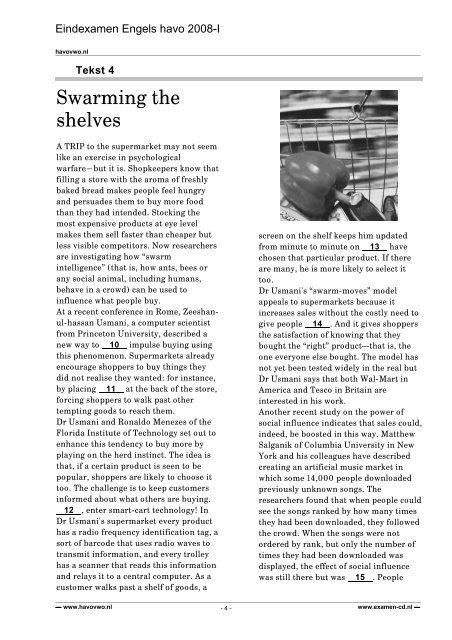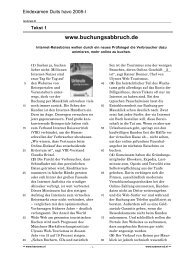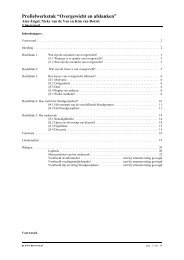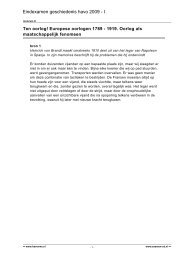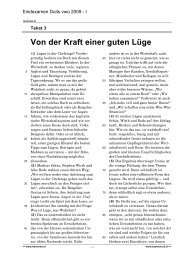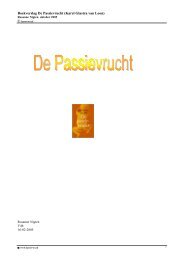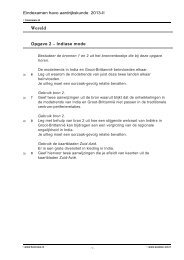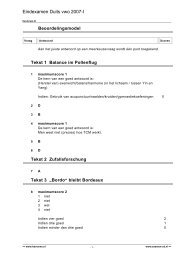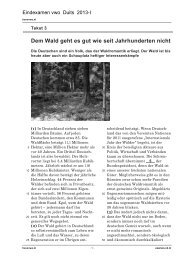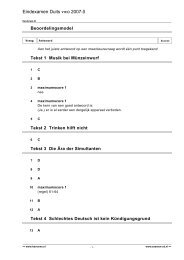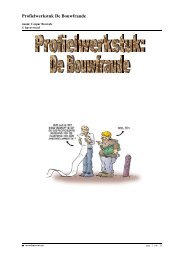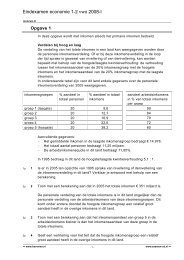Eindexamen Engels havo 2008-I - Havovwo.nl
Eindexamen Engels havo 2008-I - Havovwo.nl
Eindexamen Engels havo 2008-I - Havovwo.nl
You also want an ePaper? Increase the reach of your titles
YUMPU automatically turns print PDFs into web optimized ePapers that Google loves.
<strong>Eindexamen</strong> <strong>Engels</strong> <strong>havo</strong> <strong>2008</strong>-I<br />
<strong>havo</strong>vwo.<strong>nl</strong><br />
Tekst 4<br />
Swarming the<br />
shelves<br />
A TRIP to the supermarket may not seem<br />
like an exercise in psychological<br />
warfare―but it is. Shopkeepers know that<br />
filling a store with the aroma of freshly<br />
baked bread makes people feel hungry<br />
and persuades them to buy more food<br />
than they had intended. Stocking the<br />
most expensive products at eye level<br />
makes them sell faster than cheaper but<br />
less visible competitors. Now researchers<br />
are investigating how “swarm<br />
intelligence” (that is, how ants, bees or<br />
any social animal, including humans,<br />
behave in a crowd) can be used to<br />
influence what people buy.<br />
At a recent conference in Rome, Zeeshanul-hassan<br />
Usmani, a computer scientist<br />
from Princeton University, described a<br />
new way to 10 impulse buying using<br />
this phenomenon. Supermarkets already<br />
encourage shoppers to buy things they<br />
did not realise they wanted: for instance,<br />
by placing 11 at the back of the store,<br />
forcing shoppers to walk past other<br />
tempting goods to reach them.<br />
Dr Usmani and Ronaldo Menezes of the<br />
Florida Institute of Technology set out to<br />
enhance this tendency to buy more by<br />
playing on the herd instinct. The idea is<br />
that, if a certain product is seen to be<br />
popular, shoppers are likely to choose it<br />
too. The challenge is to keep customers<br />
informed about what others are buying.<br />
12 , enter smart-cart technology! In<br />
Dr Usmani's supermarket every product<br />
has a radio frequency identification tag, a<br />
sort of barcode that uses radio waves to<br />
transmit information, and every trolley<br />
has a scanner that reads this information<br />
and relays it to a central computer. As a<br />
customer walks past a shelf of goods, a<br />
screen on the shelf keeps him updated<br />
from minute to minute on 13 have<br />
chosen that particular product. If there<br />
are many, he is more likely to select it<br />
too.<br />
Dr Usmani's “swarm-moves” model<br />
appeals to supermarkets because it<br />
increases sales without the costly need to<br />
give people 14 . And it gives shoppers<br />
the satisfaction of knowing that they<br />
bought the “right” product—that is, the<br />
one everyone else bought. The model has<br />
not yet been tested widely in the real but<br />
Dr Usmani says that both Wal-Mart in<br />
America and Tesco in Britain are<br />
interested in his work.<br />
Another recent study on the power of<br />
social influence indicates that sales could,<br />
indeed, be boosted in this way. Matthew<br />
Salganik of Columbia University in New<br />
York and his colleagues have described<br />
creating an artificial music market in<br />
which some 14,000 people dow<strong>nl</strong>oaded<br />
previously unknown songs. The<br />
researchers found that when people could<br />
see the songs ranked by how many times<br />
they had been dow<strong>nl</strong>oaded, they followed<br />
the crowd. When the songs were not<br />
ordered by rank, but o<strong>nl</strong>y the number of<br />
times they had been dow<strong>nl</strong>oaded was<br />
displayed, the effect of social influence<br />
was still there but was 15 . People<br />
▬ www.<strong>havo</strong>vwo.<strong>nl</strong> - 4 -<br />
www.examen-cd.<strong>nl</strong> ▬


